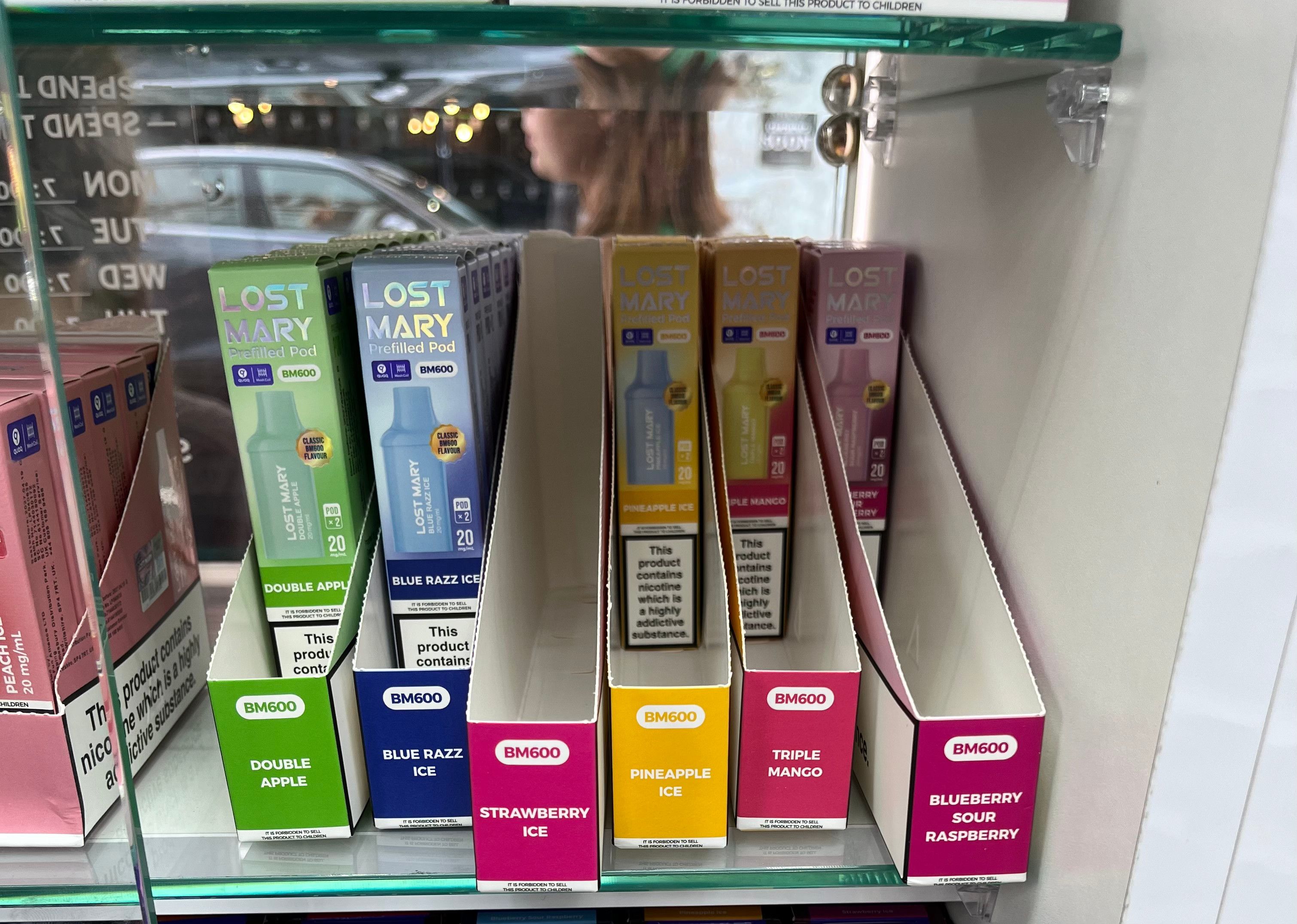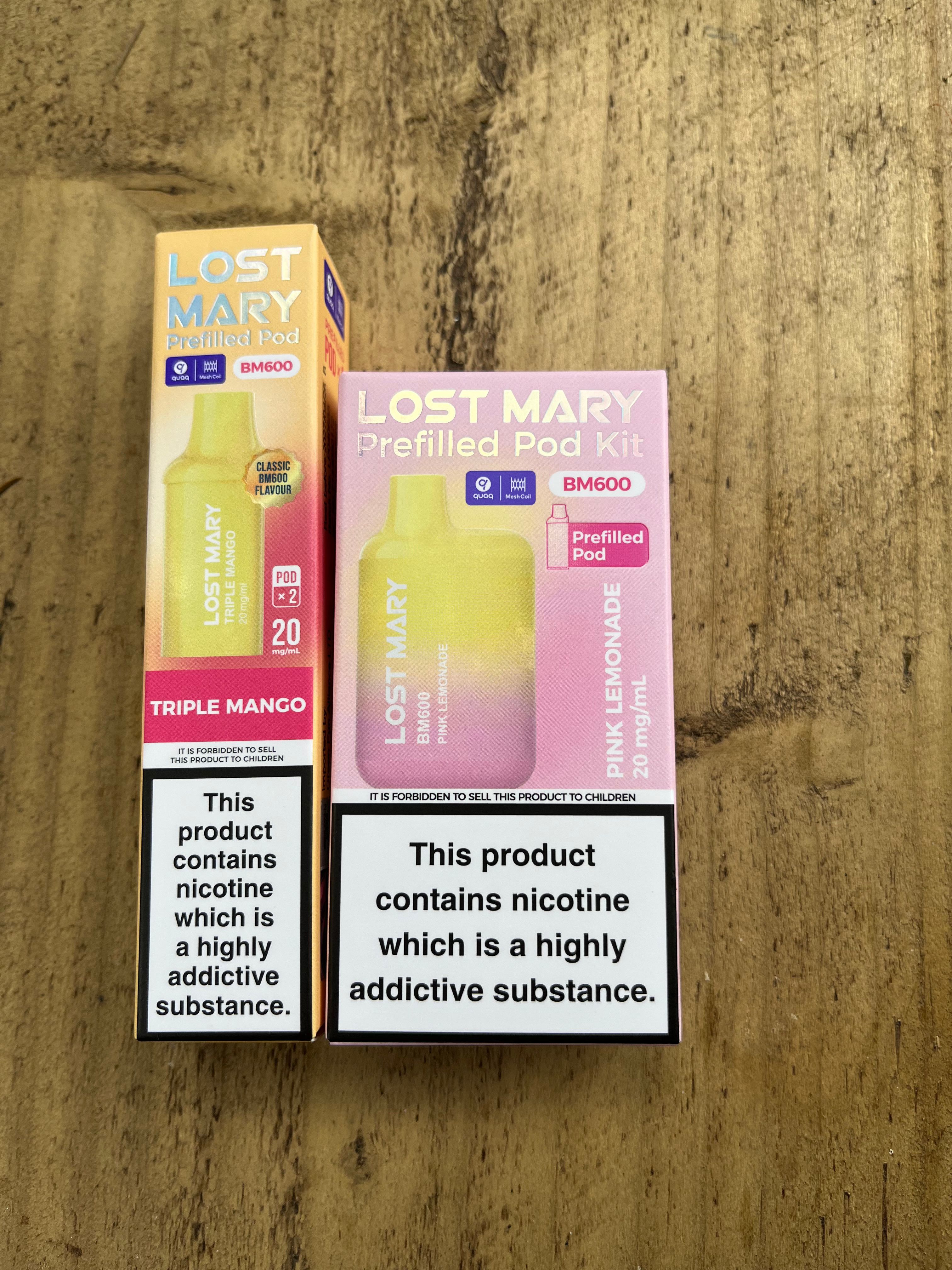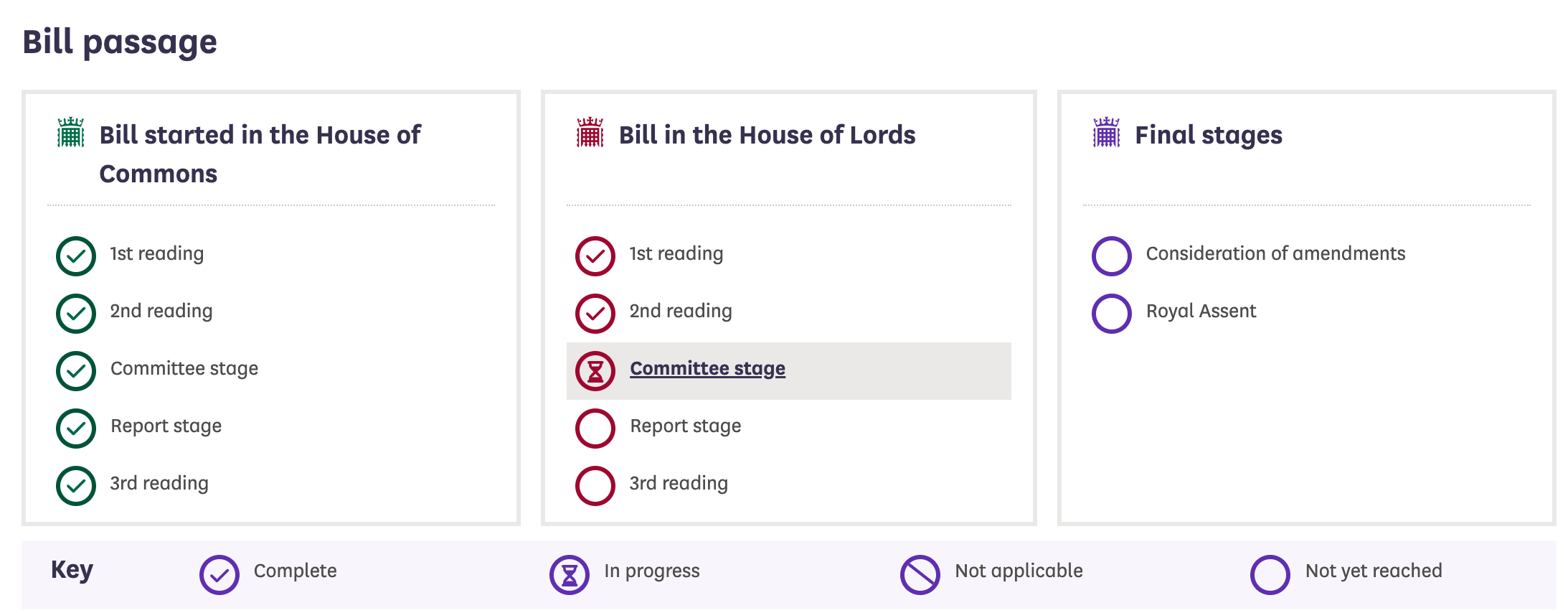A HOSTILE ATTITUDE TO NICOTINE
THE UNINTENDED CONSEQUENCES OF STRICT LEGISLATION
By Oscar Glyn


New legislation targeted at nicotine alternatives has been criticised for limiting options that smokers have to quit.
The ban on single use vapes, which came into effect on June 1, primarily aimed to make vaping less accessible for young people according to the government. But concerns have been raised that smokers accessibility to nicotine alternatives has been reduced.
The ban, brought by DEFRA, is separate to the tobacco and vapes bill currently in the House of Lords but is representative of an increasing hostile legislative attitude towards nicotine.
The Tobacco and Vapes Bill is described by the Department for Health and Social Care as "being the biggest public health intervention in a generation – breaking the cycle of addiction and disadvantage and putting us on track towards a smoke-free UK. "
Worries such as demonising nicotine, misinformation surrounding vaping, and intruding on principles of freedom have been voiced by critics of the bill.
Both politicians and tobacco control campaigners have been critical of new legislation, levelling claims of a nanny state.
Critics argue that adults should be free to make their own choices as long as they are aware of the consequences and it is not the governments role to police their free decisions.
However, those in favour however said vaping amongst the young and smoking in the UK has become a public health crisis which requires immediate government intervention.
Health Secretary Wes Streeting, said: "The Tobacco and Vapes Bill provides the protection that children and young people need to avoid a life imprisoned by addiction."
According to NHS data from 2019 there were an estimated 74,600 deaths attributable to smoking.
This figure represents 15% of all deaths in 2019.
Deaths attributable to smoking are down compared to the previous decade at 18% of all deaths in 2009. This is compared to just 4 vaping related deaths as of 2020. It has been more difficult to collate data on smoking and vaping deaths since the pandemic.
One of the largest problems facing healthcare charities and the NHS is misinformation surrounding the harm of vaping. The NHS has a web page devoted to vaping myths and the facts.
But all public bodies working together with the same agenda. In 2020 the World Health Organisation (WHO) issued warnings about the health risks associated with vaping.
The UK Centre for Tobacco and Alcohol Studies at the University of Nottingham responded that: "WHO does not correctly position electronic non-nicotine delivery systems (ENDS) as an alternative to smoking and instead focusses excessively on risks of ENDS without adequately recognising the deep reduction in health risks."
The single-use vape ban
The single use vape ban has two aims. First of all, it aims to stop the trend of people under the age of 18 using these devices.
It is estimated that nearly a quarter of 11-15 year olds have tried vaping and 9% do it frequently according to NHS England data from 2024.
Disposable vapes often have brightly coloured packaging and enticing flavour names such as 'cola' or 'pink lemonade.' A study published in Nicotine & Tobacco Research concluded that teenagers in UK, Canada and USA were more likely to start vaping if the packaging was colourful.
Image credit - FREEPIK
Secondly, it aims to stop the environmental harm and impact that the discarding of disposable vapes have. It is estimated that more than 5 million disposable vapes are thrown away every week in the UK with only 17% of users recycling them properly.
It is also estimated that 48% of waste fires in the UK are caused by disposable vapes in bin lorries and at waste management centres.
A waste fire in Birmingham was suspected to be caused by a discarded vape.
CEO of Biffa, the waste management company, Michael Topham, said: "The UK is facing a growing epidemic of battery-related waste fires, which threaten lives, vital infrastructure, and the environment."
This is due to the use of lithium batteries within the devices and incorrect disposal.
Image credit - Flickr, Vaping360
Mary Creagh, Minister for Circular Economy, said: "For too long, single-use vapes have blighted our streets as litter and hooked our children on nicotine. That ends today.
"The Government calls time on these nasty devices."
Image credit - Flickr, House of Commons
There are concerns regarding the bill that there is a vilification of nicotine as a substance as a whole when the real danger, is combustible smoking.
Louise Ross is the former chair of the New Nicotine Alliance and has worked in the field of tobacco control for over 20 years.
Ross said: "There are unintended consequences with the legislation that may mean people continue to smoke. We hear from the stop smoking service now that people think vaping is more harmful than smoking."
The Stop Smoking Service is a service provided by the NHS and local councils across England aiming at providing people with support to quit smoking. Other parts of Britain have similar services.
She continued: "My biggest fear with this bill is that because it lumps vapes in with smoked tobacco, people think they are equally bad and so it doesn't really matter whether people smoke or vape. I'd much rather some clarity be brought to the subject and people realised vaping was much less harmful than smoking."
Simon Clark is the director of the smoker's lobby group FOREST (Freedom organisation for the right to enjoy tobacco), the only group of its kind in the country.
Clark said: “Disposable vapes have been hugely popular with smokers who are trying to quit because they are as convenient and easy to use as a combustible cigarette.
"Banning single use vapes is a disproportionate response to youth vaping and environmental concerns that could and should have been addressed by other means, including education and enforcement of existing laws."
A spokesperson for LOST MARY, one of the prominent manufacturers of vapes in the UK, said: “Our products are designed as smoking cessation tools for adults, with 68% of UK adults who vape to quit smoking using our brands at least once a week.* As a responsible brand, we are committed to youth access prevention and do not market to children.
“LOST MARY follows the Independent British Vape Trade Association (IBVTA) code of conduct, which calls for an end to the use of inappropriate imagery and language on packaging and descriptors. In line with this, we have removed descriptors and certain flavours that may unintendedly appeal to children. We also do not promote our products on social media platforms and our packaging features an age restriction symbol and clear labelling stating that sales to children are prohibited.
“We actively support responsible retailing as members of the IBVTA, Association of Convenience Stores, Scottish Grocers’ Federation and Retail NI. This includes the Challenge 25 programme for age-restricted products.
“It is also important to recognise that the single-use ban was introduced through existing environmental regulation – and must be seen as part of broader measures to regulate the vape market, that we welcome. The Tobacco and Vapes Bill currently before Parliament gives ministers the power to introduce further steps, including restrictions on advertising, point-of-sale displays, a ban on vending machines selling vapes, the end to the use of cartoon imagery, and powers to introduce a licensing scheme – all of which we support.
“It is illegal for under-18s to purchase vapes and we want to see more resources for enforcement, which the licensing scheme could help fund. Tougher penalties for those breaking the law are needed too. We also back the introduction of the excise tax, commencing October 2026, that will raise the price point of vapes and reduce affordability to children.”
* Opinium survey of 6,000 UK adults (December 2024)
"I'd much rather some clarity be brought to the situation and people realised that vaping is much less harmful than smoking."
Credit - Louise's message, New Nicotine Alliance
Goodnight. 😉 pic.twitter.com/hYoMzZu7AZ
— Simon Clark (@simonclark_) March 25, 2025
Lost Mary Pods on sale at a retailer, Credit - Oscar Glyn
Lost Mary Pods on sale at a retailer, Credit - Oscar Glyn
According to the NHS, vaping is twice as effective helping smokers to quit compared to other nicotine replacements such as patches or gum.
Whilst nicotine is still an addictive drug, it doesn't contain toxic chemicals found in cigarettes, such as tar and tobacco.
It is estimated that after buying the initial kit to start vaping, a vaper will spend about 1/3 of a smoker.
According to ASH, 50% of all smokers in 2024 believed vaping was more harmful than smoking.
There are already loopholes being found in the legislation with many single use manufacturers simply changing their design and manufacturing process.
Ross said: "I think there will always be ways of getting around things like this and I'm afraid that this will be exploited.
"You've got to remember that trading standards are going to be chasing around illegal vapes. They're not going to be able use their resources to find illegal tobacco.
"Young people starting to use tobacco is even more of a health and social problem than vaping."
Vaping companies are changing designs of their products to fit the requirements of the legislation.
Many of the devices now contain a removable pod that can be bought separately from the main device and have charging ports.
Pods (left) and the disposable vape (right) Image credit - Oscar Glyn
Pods (left) and the disposable vape (right) Image credit - Oscar Glyn
"Young people starting to use tobacco is even more of a health and social problem than vaping."
Louise Ross, NNA
A spokesperson for LOST MARY said:“LOST MARY’s reusable product designs follow both the letter and spirit of the single-use vapes ban legislation. Our devices are built for long-term use – for example, the LOST MARY BM600 Prefilled Pod Kit’s battery can be recharged more than 300 times.
"Its refill pods are sold in packs of two at a price point that offers significantly better value for money for adult smokers and ex-smokers than buying a new device each time. This encourages continued use of the same device and makes the product substantially less wasteful than single-use devices.
“Sales figures indicate that replacement pods for many reusable products are outselling devices by almost two to one, indicating consumers are recharging rather than discarding the devices, substantially reducing waste.
“All retailers selling vapes are required to have a recycling facility for customers to return used or unwanted vapes. To support this, we have also suggested the government make it a condition of any licensing scheme that retailers should have a takeback service.”
The manufacturer, Shenzhen iMiracle Technology were also contacted for comment
Image - free to use from Unsplash
Image - free to use from Unsplash
Spot the difference?
Can you tell the difference between a vape bought before the ban and one bought after the ban?
Credit - Oscar Glyn
Credit - Oscar Glyn
There's no price difference
Both these vapes were bought for the same price from the same retailer
Credit - Oscar Glyn
Credit - Oscar Glyn
A LOST MARY spokesperson said: “Our reusable pod kits are widely available across over 50,000 UK outlets, including leading supermarkets and grocers, supported by readily available refill parts, including pods and containers. We have worked closely with retailers, wholesalers and distributors to ensure supply and accessibility by adult users nationwide.
“The LOST MARY packaging states that the device is rechargeable, and supporting materials inside the pack also make it clear the products are for reuse. To reinforce this even further, we are updating the packaging with a new logo that highlights the product is reusable, rechargeable and uses replaceable pods.”
The bill currently progressing through the House of Lords, entitled the Smoking and Tobacco bill, looks to make it illegal for anyone born after the year 2009 to buy any form of tobacco in their lifetime.
The Tobacco and Vapes Bill progress through the legislative system. Obtained from https://bills.parliament.uk/bills/3879#timeline
The Tobacco and Vapes Bill progress through the legislative system. Obtained from https://bills.parliament.uk/bills/3879#timeline
This follows the initiative that was enacted into law in New Zealand in 2022 but since been repealed with the money raised used to finance tax cuts.
The British legislation also seeks to place higher restrictions on the advertising of nicotine products.
One product, nicotine pouches, have been useful for smokers in helping them quit but still there is limited public knowledge of their existence.
The pouches are used orally, the user putting them in their gums, which give a slow release of nicotine over a prolonged time period.
According to ASH, 48% of adults had never heard of nicotine pouches with 40% of people already using nicotine pouches had heard of them.
Manufacturers and anti-smoking campaigners are worried that the government will stifle a smoking alternative.
British and American Tobacco (BAT), who own Vuse, were approached for comment.
Image from Flickr - Tom Magliery
Image from Flickr - Tom Magliery
Image credit - Oscar Glyn
Image credit - Oscar Glyn
Credit - Oscar Glyn
Credit - Oscar Glyn
Louise Ross said: “Nicotine pouches as an alternative to smoked tobacco have a very strong place in the nicotine market.”
She recognised that they should be regulated in terms of strength but that they can be helpful in helping people to give up smoking.
Nordic Spirit is one of the biggest brands in the UK that produces nicotine pouches and sold the second highest amount of nicotine pouches in 2024 according to Haypp.
They are owned by Japanese Tobacco International (JTI) who reported revenue of around £16 billion in 2024.
A spokesperson from JTI said: “We have concerns that some aspects of the legislation that could needlessly damage an emerging category and risk undermining the UK's success in promoting smoking alternatives if passed.
“JTI strongly believes that no nicotine product should appeal or be sold to anyone under the age of 18 and we welcome regulation that prohibits sale of nicotine products to minors and seeks to restrict the youth appeal.”
The JTI spokesperson added: "JTI does not market any of its products including Nicotine Pouches as smoking cessation products. They are an alternative for smokers looking for products with the potential to reduce the risks associated with smoking."
Aleksandra Bielas, a computer science student, 24, quit smoking in favour of nicotine pouches and has now quit nicotine all together.
Bielas said: “Pouches are not very visible and you don’t smell as well. Both smoking and vaping made me feel really disgusting and pouches didn’t. It then helped me with anxiety and calming myself down.”
Though Bielas did recognise the fact that at times quitting nicotine pouches was harder than quitting smoking itself.
“You only have the habit switch, not the nicotine withdrawals.”
The bill was initially brought forward by the conservative government under Rishi Sunak.
It was not whipped, meaning MPs could vote with their own beliefs rather than following party lines.
Less than half of sitting Tory MPs voted in favour of the bill with 57 of them voting against it.
We should not treat legally competent adults differently in this way, where people born a day apart will have permanently different rights.
— Kemi Badenoch (@KemiBadenoch) April 16, 2024
Among other reasons it will create difficulties with enforcement. This burden will fall not on the state but on private businesses… (3/4)
The bill has caused controversy across political parties with Conservative party leader, Kemi Badenoch and Reform party leader, Nigel Farage opposing it.
Director of Forest, Simon Clark, said that the ban had a potential to create a two-tier society where some adults would have rights not afforded to others.
He said: "Creeping prohibition will simply drive the sale of tobacco underground and into the hands of criminal gangs and illicit traders."
However, the chief medical officer, Professor Chris Whitty told the BBC: “As a doctor I’ve seen many people in hospital desperate to stop smoking because it’s killing them and yet they cannot — their choice has been removed.”
The concept of choice being removed from addicts has been the key point debated across the introduction of the bill.
The committee stage in the House of Lords for the bill is set to be announced in the coming weeks.
A packet of nicotine pouches. Credit - Oscar Glyn
A packet of nicotine pouches. Credit - Oscar Glyn
Credit - Flickr
Credit - Flickr
Aleksandra Bielas, Credit - Aleksandra Bielas
Aleksandra Bielas, Credit - Aleksandra Bielas
Image credit - Flickr, The Conservative Party
Image credit - Flickr, The Conservative Party
Image credit - Flickr, No. 10
Image credit - Flickr, No. 10












